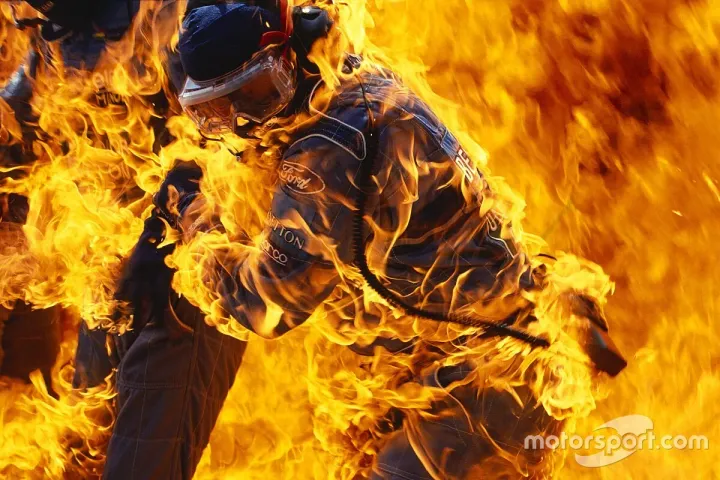Is there money in photography ?
Discussion
I notice the huge number of photographers at sporting events and festivals, at a recent Diamond League athletics meet must have been about 60 snappers, running around with multiple cameras, shooting the same athletes from the same angle. Who buys their output, websites, magazines, agencies, with everyone having mobile phones is there a still a market for single images ?.
How long to to wait for that Pulitzer, one-in-a-million moment in time opportunity ?

How long to to wait for that Pulitzer, one-in-a-million moment in time opportunity ?
Yes, there can be nice earning opportunities from photography.
In the examples you mention, there will be a mix of freelancers, agency and staff photographers. Some will be there working to a specific brief, such as capturing a specific competitor or subject, some will have a wider remit. If staff, they'll be salaried. Agency and freelancers will work on a day-rate for their client and some will work on a per-image payment basis.
The reason there's so many is because of image ownership and copyright. So, at turn one at Silverstone on Sunday there'll be hoards of photographers in the pen ready to capture any incident that may occur. If it does, they're all gong to get the same shot. But if only one photographer got the shot, either it's seen in only one publication or there's a bidding war to run it across different media. Better to have your own photographer get the shot for you - even though others have got the same shot but from slightly different angles - because you then own that shot.
Most sports and event photographers will do normal commercial photography during the week.
I run a comms agency and photography and film are part of our service offer. We use both as part of the process of developing campaigns but also as standalone services. Campaign photography is good fun and often a nice challenge. A typical assignment might be to capture scenes that will be used across a campaign to promote adult social care, say. We can't just rock up at a care home and start snapping so there's a lot of planning, prep and set up needed. Often will need to use pro-models.
In the examples you mention, there will be a mix of freelancers, agency and staff photographers. Some will be there working to a specific brief, such as capturing a specific competitor or subject, some will have a wider remit. If staff, they'll be salaried. Agency and freelancers will work on a day-rate for their client and some will work on a per-image payment basis.
The reason there's so many is because of image ownership and copyright. So, at turn one at Silverstone on Sunday there'll be hoards of photographers in the pen ready to capture any incident that may occur. If it does, they're all gong to get the same shot. But if only one photographer got the shot, either it's seen in only one publication or there's a bidding war to run it across different media. Better to have your own photographer get the shot for you - even though others have got the same shot but from slightly different angles - because you then own that shot.
Most sports and event photographers will do normal commercial photography during the week.
I run a comms agency and photography and film are part of our service offer. We use both as part of the process of developing campaigns but also as standalone services. Campaign photography is good fun and often a nice challenge. A typical assignment might be to capture scenes that will be used across a campaign to promote adult social care, say. We can't just rock up at a care home and start snapping so there's a lot of planning, prep and set up needed. Often will need to use pro-models.
StevieBee said:
Better to have your own photographer get the shot for you - even though others have got the same shot but from slightly different angles - because you then own that shot.
Only if he's an employee, otherwise it depends what copyright/licence arrangement you agreed.StevieBee said:
Campaign photography is good fun and often a nice challenge. A typical assignment might be to capture scenes that will be used across a campaign to promote adult social care, say.
The difference here I suspect between you and the OP is that you have a client and a budget before you start, so you can take photos as per brief and send in the bill. That's very different from taking opportunistic photos and hoping somebody wants to buy them...Gassing Station | Photography & Video | Top of Page | What's New | My Stuff



